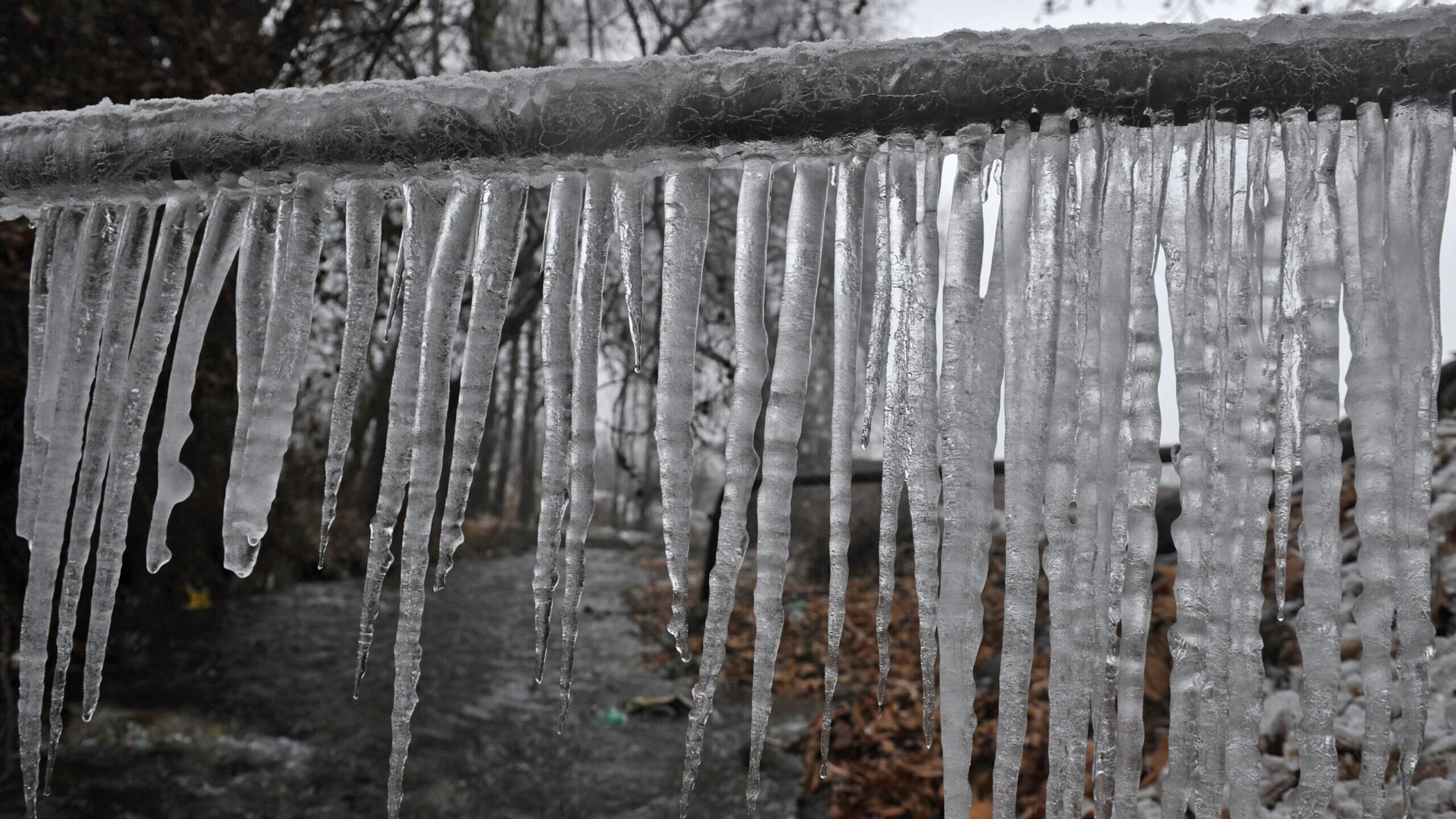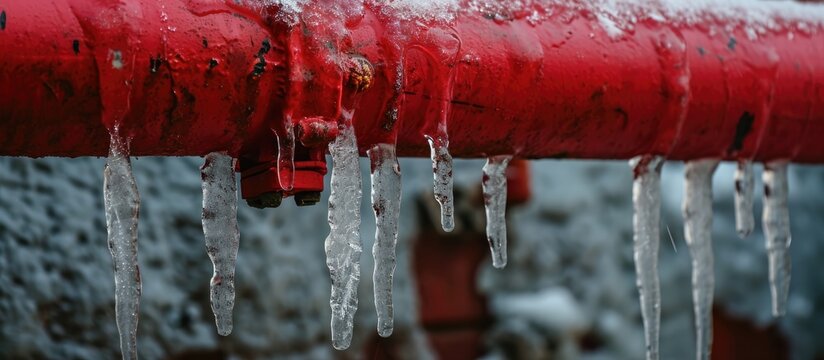The article author is making a number of good pointers on Preventing and dealing with frozen pipes as a whole in the content down below.

Winter can ruin your plumbing, especially by freezing pipelines. Below's just how to prevent it from happening and what to do if it does.
Introduction
As temperatures decrease, the danger of frozen pipes boosts, potentially causing expensive repair services and water damages. Comprehending exactly how to avoid frozen pipes is essential for property owners in cold environments.
Avoidance Tips
Protecting susceptible pipelines
Cover pipes in insulation sleeves or use warmth tape to safeguard them from freezing temperatures. Concentrate on pipes in unheated or external areas of the home.
Heating techniques
Keep interior areas properly heated, especially locations with pipes. Open up cupboard doors to permit warm air to distribute around pipelines under sinks.
Just how to determine icy pipelines
Look for decreased water circulation from taps, unusual odors or sounds from pipes, and visible frost on subjected pipelines.
Long-Term Solutions
Structural modifications
Take into consideration rerouting pipelines far from outside walls or unheated areas. Add additional insulation to attics, basements, and crawl spaces.
Upgrading insulation
Purchase high-grade insulation for pipelines, attic rooms, and wall surfaces. Correct insulation aids preserve constant temperatures and decreases the risk of frozen pipelines.
Shielding Outside Plumbing
Garden hoses and exterior faucets
Disconnect and drain pipes yard hose pipes prior to winter. Set up frost-proof faucets or cover outdoor faucets with shielded caps.
Understanding Frozen Pipelines
What causes pipes to ice up?
Pipelines ice up when exposed to temperatures listed below 32 ° F (0 ° C) for expanded durations. As water inside the pipes freezes, it expands, putting pressure on the pipeline wall surfaces and possibly triggering them to burst.
Dangers and damages
Icy pipelines can result in water interruptions, home damages, and costly fixings. Ruptured pipelines can flood homes and cause considerable architectural damages.
Signs of Frozen Water Lines
Determining icy pipes early can avoid them from breaking.
What to Do If Your Pipes Freeze
Immediate activities to take
If you believe icy pipelines, keep faucets open to relieve stress as the ice thaws. Utilize a hairdryer or towels soaked in warm water to thaw pipelines slowly.
Conclusion
Protecting against icy pipes calls for positive measures and fast reactions. By understanding the reasons, signs, and safety nets, property owners can shield their pipes during cold weather.
Helpful Tips to Prevent Frozen Pipes this Winter
UNDERSTANDING THE BASICS: WHY PIPES FREEZE AND WHY IT’S A PROBLEM
Water freezing inside pipes is common during the winter months, but understanding why pipes freeze, and the potential problems it can cause is crucial in preventing such incidents. This section will delve into the basics of why pipes freeze and the associated problems that may arise.
THE SCIENCE BEHIND FROZEN PIPES
When water reaches freezing temperatures, it undergoes a physical transformation and solidifies into ice. This expansion of water as it freezes is the primary reason pipes can burst. As the water inside the pipe freezes, it expands, creating immense pressure on the walls. If the pressure becomes too great, the pipe can crack or rupture, leading to leaks and water damage.
FACTORS THAT CONTRIBUTE TO PIPE FREEZING
Low Temperatures: Extremely cold weather, especially below freezing, increases the risk of pipes freezing. Uninsulated or Poorly Insulated Pipes: Pipes located in unheated areas, such as basements, crawl spaces, or attics, are more prone to freezing. Insufficient insulation or lack of insulation altogether exacerbates the problem. Exterior Wall Exposure: Pipes running along exterior walls are susceptible to freezing as they encounter colder temperatures outside. Lack of Heating or Temperature Regulation: Inadequate heating or inconsistent temperature control in your home can contribute to frozen pipes. PROBLEMS CAUSED BY FROZEN PIPES
- Pipe Bursting: As mentioned earlier, the expansion of water as it freezes can cause pipes to burst, resulting in significant water damage.
- Water Damage: When pipes burst, it can lead to flooding and water damage to your property, including walls, ceilings, flooring, and personal belongings.
- Structural Damage: Prolonged exposure to water from burst pipes can compromise the structural integrity of your home, leading to costly repairs.
- Mold and Mildew Growth: Excess moisture from water damage can create a favorable environment for mold and mildew growth, posing health risks to occupants.
- Disrupted Water Supply: Frozen pipes can also result in a complete or partial loss of water supply until the issue is resolved.
WHY CERTAIN PIPES ARE MORE PRONE TO FREEZING
- Location: Pipes located in unheated or poorly insulated areas, such as basements, crawl spaces, attics, or exterior walls, are at higher risk of freezing.
- Exterior Pipes: Outdoor pipes, such as those used for irrigation or exposed plumbing, are particularly vulnerable to freezing as they are directly exposed to the elements.
- Supply Lines: Pipes that carry water from the main water supply into your home, including the main water line, are critical to protect as freezing in these lines can affect your entire plumbing system.
- Underground Pipes: Pipes buried underground, such as those connected to sprinkler systems or outdoor faucets, can be susceptible to freezing if not properly insulated.
https://busybusy.com/blog/helpful-tips-to-prevent-frozen-pipes-this-winter/

We were introduced to that write-up on How to prepare your home plumbing for winter weather through an associate on a different web page. If you please pause to promote this page if you enjoyed reading it. Thanks a bunch for being here. Kindly come by our site back soon.
Further Details